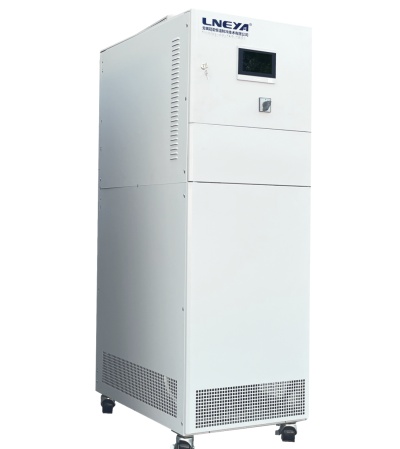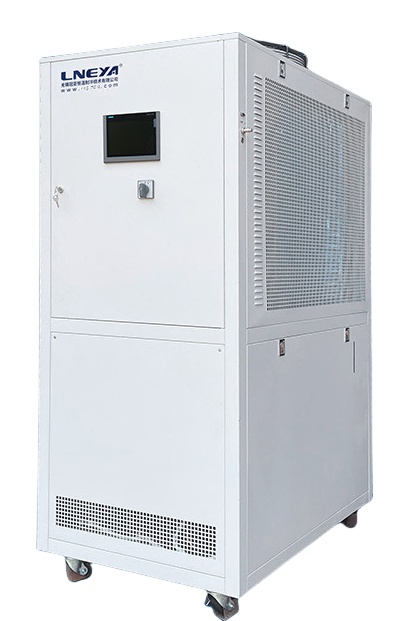ACHEMA 2024
692024 ACHEMA Biochemical Technology Exhibition in Frankfurt, Germany ACHEMA 2024Germany Ahma Biochemical Technology ExhibitionJune 10-14, 2024Ludwig-Erhard-Anlage 1, Frankfurt, GermanyBooth number: 6.1-C55 ,
View detailsSearch the whole station Pharmaceutical Chiller 产品分类菜单
Understanding 60 kW Chillers
A 60 kW chiller is a substantial cooling system capable of providing 60 kilowatts of cooling power. These chillers are designed for applications with high cooling demands, such as large commercial buildings, data centers, and industrial processes. They are available in different types, including air-cooled and water-cooled, each with its advantages and suitable for different environments.

Key Features of 60 kW Chillers
Cooling Capacity: With a cooling capacity of 60 kW, these chillers are suitable for medium to large-scale cooling needs.
Type of Chiller: Chillers can be air-cooled or water-cooled. Air-cooled chillers are easier to install and maintain, while water-cooled chillers offer higher efficiency and are more suitable for larger applications.
Efficiency: The efficiency of a chiller is measured by its coefficient of performance (COP). Higher COP values indicate better energy efficiency, which can lead to significant cost savings.
Control Systems: Modern 60 kW chillers often feature advanced control systems for precise temperature regulation and energy management.

Efficiency and Applications
60 kW chillers are designed to operate efficiently under varying load conditions. They are used in applications where precise temperature control is critical, such as in server rooms, industrial processes, and large commercial spaces. The chillers’ high efficiency and reliability make them a preferred choice for mission-critical cooling applications.
Selection Process for a 60 kW Chiller
When selecting a 60 kW chiller, consider the following factors:
Cooling Load: Ensure the chiller’s capacity matches the cooling load of the application.
Type of Chiller: Choose between air-cooled or water-cooled based on the application’s requirements and the availability of water sources.

Energy Efficiency: Look for chillers with high COP ratings to minimize energy consumption and operating costs.
Maintenance and Service: Consider the ease of maintenance and the availability of service support from the manufacturer.
Budget: Determine your budget and find a chiller that offers the best value for money without compromising on essential features and quality.
Conclusion
A 60 kW chiller is an excellent choice for applications requiring precise temperature control and energy efficiency. By understanding the key features and considering the selection factors, you can ensure that the chiller you choose will meet the cooling demands of your application while providing a good return on investment. The ongoing advancements in chiller technology contribute to improved performance and sustainability in the HVAC and industrial sectors.
2024 ACHEMA Biochemical Technology Exhibition in Frankfurt, Germany ACHEMA 2024Germany Ahma Biochemical Technology ExhibitionJune 10-14, 2024Ludwig-Erhard-Anlage 1, Frankfurt, GermanyBooth number: 6.1-C55 ,
View detailsA liquid bath, also known as a temperature-controlled bath, is a scientific apparatus used to maintain a stable temperature for various applications. This article covers the types, applications, and operation of liquid baths, including their importance in scientific research and industrial processes. It also discusses the factors affecting their performance and the maintenance required to ensure accuracy and reliability.
View detailsUltra-low temperature recirculating chillers are essential for applications requiring precise temperature control below the freezing point of water. This article discusses the features, applications, and technical aspects of ultra-low temperature recirculating chillers, including their cooling capacities, temperature ranges, and the importance of proper maintenance for optimal performance.
View detailsThermic fluid heaters, also known as hot oil heaters, are essential in industries requiring high-temperature process heating without the need for excessive pressure. These heaters circulate thermal fluid through a closed system to transfer heat efficiently. The market for thermic fluid heaters is growing, driven by demand for energy efficiency and technological advancements. Safety, efficiency, and the ability to operate at high temperatures are key factors in the design and operation of these heaters.
View details